Your Fed, Your Voice
Your Fed, Your Voice reflects the role the Federal Reserve Bank of St. Louis plays in listening to stakeholders throughout the Eighth Federal Reserve District as part of our commitment to a strong and resilient economy that works for all.
Your Fed, Your Voice Conversations
Your Fed, Your Voice Conversations go beyond economic indicators and data points to tell the stories of impactful people and groups across our District. Watch these engaging discussions on YouTube or listen and subscribe to audio-only versions on Apple, Spotify or anywhere you get podcasts to learn more about how these people make a difference.
-

Michelle Tucker
President and CEO, United Way of Greater St. Louis
St. Louis, Mo. -

Tim Nowak
Executive Director, World Trade Center St. Louis
St. Louis, Mo. -
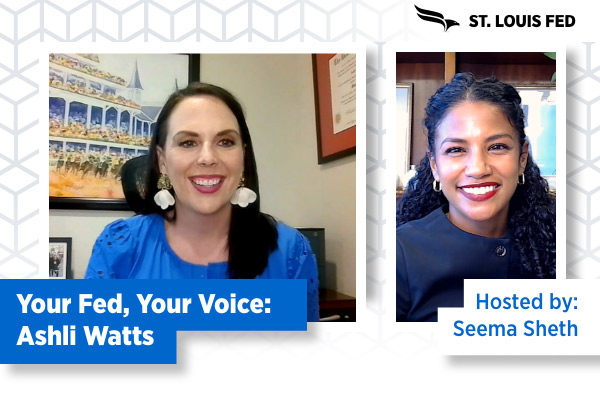
Ashli Watts
President and CEO, Kentucky Chamber of Commerce
Frankfort, Ky.
Your Fed, Your Voice Profiles
Your Fed, Your Voice Profiles highlight the work of St. Louis Fed employees and stakeholders from around the District who are important to our efforts. They share their commitment to amplifying the voices of Main Street—listening and serving as active partners in the communities we serve.
-
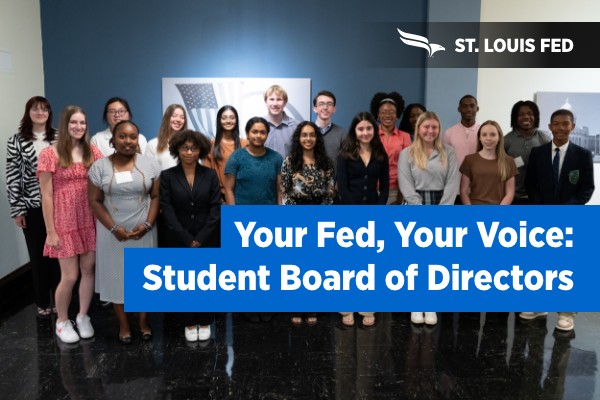
St. Louis Fed Student Board of Directors
St. Louis, Mo.
-
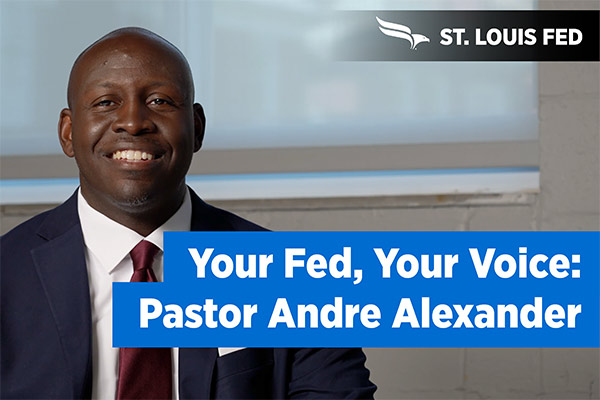
Pastor Andre Alexander
Pastor, The Tabernacle; President, Tabernacle Community Development Corp.
Member, St. Louis Fed Community Development Advisory Council
St. Louis, Mo. -

Nishesh Chalise
Senior Manager, Community Development, Federal Reserve Bank of St. Louis
St. Louis, Mo. -
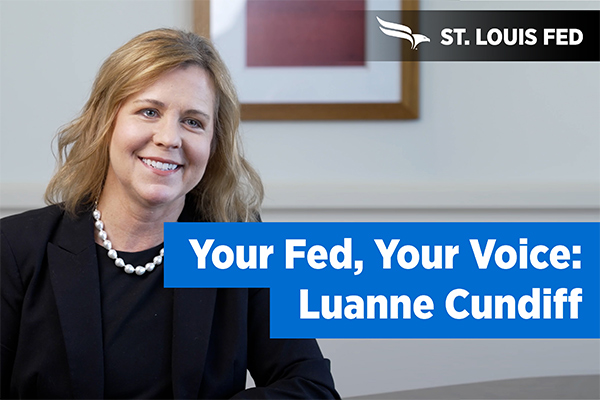
Luanne Cundiff
President and CEO, First State Bank of St. Charles
Chair, St. Louis Fed Community Depository Institutions Advisory Council
St. Louis, Mo. -
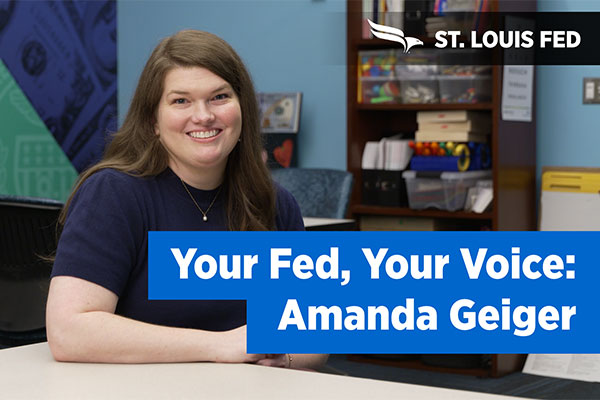
Amanda Geiger
Senior Economic Education Specialist, Federal Reserve Bank of St. Louis
St. Louis, Mo. -
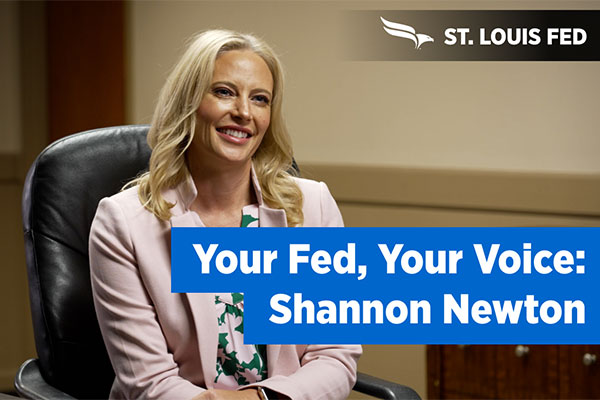
Shannon Newton
President, Arkansas Trucking Association
Member, St. Louis Fed Transportation Industry Council
Little Rock, Ark. -

Darrin Williams
CEO of Southern Bancorp Inc.
St. Louis Fed Little Rock Branch Board of Directors
Little Rock, Ark.

